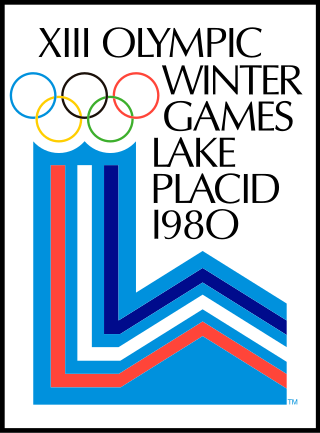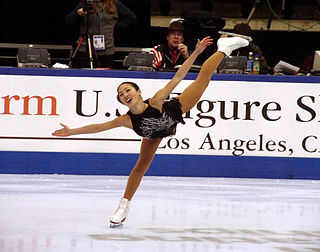Related Research Articles

The 1980 Winter Olympics, officially the XIII Olympic Winter Games and also known as Lake Placid 1980, were an international multi-sport event held from February 13 to 24, 1980, in Lake Placid, New York, United States.

The 1984 Winter Olympics, officially known as the XIV Olympic Winter Games and commonly known as Sarajevo '84, were a winter multi-sport event held between 8 and 19 February 1984 in Sarajevo, Yugoslavia. It was the first Winter Olympic Games held in a Slavic language-speaking country, as well as the only Winter Olympics held in a communist country before the 2022 Winter Olympics in Beijing, China. It was the second consecutive Olympic Games held in a communist country, after the 1980 Summer Olympics in Moscow, Russian SFSR, Soviet Union.

Park City is a city in Utah, United States. The vast majority is in Summit County with some portions extending into Wasatch County. It is considered to be part of the Wasatch Back. The city is 32 miles (51 km) southeast of downtown Salt Lake City and 20 miles (32 km) from Salt Lake City's east edge of Sugar House along Interstate 80. The population was 8,396 at the 2020 census. On average, the tourist population greatly exceeds the number of permanent residents.

The 1964 Winter Olympics, officially known as the IX Olympic Winter Games and commonly known as Innsbruck 1964, were a winter multi-sport event which was celebrated in Innsbruck, Austria, from January 29 to February 9, 1964. The city was already an Olympic candidate, unsuccessfully bidding to host the 1960 Games. Innsbruck won the 1964 Games bid, defeating the cities of Calgary in Canada and Lahti in Finland. The sports venues, many of which were built for the Games, were located within a radius of 20 km (12 mi) around Innsbruck. The Games included 1,091 athletes from 36 nations, which was a record for the Winter Games at the time. Athletes participated in six sports and ten disciplines which bring together a total of thirty-four official events, seven more than the 1960 Winter Olympic Games. The luge made its debut on the Olympic program. Three Asian nations made their Winter Games debut: North Korea, India and Mongolia.

The 1976 Winter Olympics, officially known as the XII Olympic Winter Games and commonly known as Innsbruck 1976, were a winter multi-sport event celebrated in Innsbruck, Austria, from February 4 to 15, 1976. The games were awarded to Innsbruck after Denver, the original host city, withdrew in 1972. This was the second time the Tyrolean capital had hosted the Winter Olympics, having first done so in 1964.

India sent a delegation to compete at the 2006 Winter Olympics in Turin, Italy from 10–26 February 2006. This was the nation's seventh appearance in a Winter Olympic Games. The Indian delegation consisted of four athletes, two in alpine skiing, one in cross-country skiing, and one in luge. Their best performance in any event was 25th by luger Shiva Keshavan in the men's singles.

Andreas Linger is an Austrian former luger who competed internationally since 2000. He and his younger brother Wolfgang began luging at a very young age, and did their first doubles run when they were 14. Linger has won five medals at the FIL World Luge Championships with three golds and two bronzes. He also earned seven medals at the FIL European Luge Championships with a gold, three silvers, and three bronzes. The Lingers were overall Luge World Cup men's doubles champions in 2011-12 and scored 15 World Cup race victories. They were two time Olympic champions in the men's doubles event at the 2006 Winter Olympics in Turin, Italy and the 2010 Winter Olympics in Vancouver, British Columbia, Canada. They won in 2006 despite Wolfgang having broken his leg in a luge crash the previous year. In 2010, they successfully defended their gold medal against another team of brothers, Andris and Juris Šics of Latvia.
Dane Spencer is a former World Cup alpine ski racer and current assistant coach with the U.S. Ski Team. At the World Cup level, he specialized in the giant slalom.
John Bower was an American nordic combined skier who competed in the 1960s and later went on to become a coach of the American nordic skiing team for the 1976 and 1980 Winter Olympic team. He also became the first non-European to ever win at the Holmenkollen Ski Festival in Norway with his 1968 victory in the Nordic combined event, winning the prestigious King's Cup.
Günther Lemmerer was an Austrian luger who competed in the early 1980s. He won the gold medal in the men's doubles event at the 1982 FIL European Luge Championships in Winterberg, West Germany.
For the 1964 Winter Olympics in Innsbruck, Austria, a total of eight sports venues were used. Luge made its debut at these games, but were marred by the death of a British slider two weeks prior to the Games. A second ski jumping event debuted and the best two out of three jumps were used in both events for the only time in the history of the Winter Olympics. All eight venues would be used again when the Winter Games returned to Innsbruck twelve years later though the venues would undergo renovations in time for the 1976 Games.
For the 1968 Winter Olympics in Grenoble, France, a total of ten sports venues were used. Most venues were constructed between the 1964 Winter Games in Innsbruck and the 1968 Games. Thawing was an issue for the four-man bobsleigh run. They were limited to only two runs. Thawing also affected the men's 500 m speed skating event. Electronic timing in alpine skiing affected the results of the women's giant slalom event. It gave Canada's Nancy Greene a headache for two days despite her gold medal in the event.
For the 1972 Winter Olympics in Sapporo, Japan, a total of twelve sports venues were used. A thirteenth venue which was a reserved luge course was constructed, but never used in actual competition. Construction on all of the venues used took place between 1968 and early 1971 in time for the test events. The Tsuskisamu Indoor Skating Rink was not completed until late 1971 or early 1972 because the number of teams scheduled to compete at the 1972 Games was not known. At the actual luge venue used, a malfunctioning starting gate during the first run led to the results being cancelled and rerun being ordered. The results of this event led to the only tie in Olympic luge history. The ski jumps at Miyanomori and Okurayama served as host venues for the FIS Nordic World Ski Championships thirty-five years later.

For the 1976 Winter Olympics in Innsbruck, Austria, a total of eight sports venues were used. The games were originally awarded to Denver, Colorado in the United States in 1970, but they withdrew in the wake of Colorado residents voting against it for environmental and cost reasons in November 1972. This led to the International Olympic Committee opening up the bids for the games again, eventually awarding them to Innsbruck in February 1973. The Austrian city, having hosted the Winter Olympics in 1964, was in the process of having the venues used for those Games before Denver's with clear cutting of the alpine skiing venues, lessening of the amount of cross-country skiing routes, upgrading the ski jumps, adding lighting in the indoor sports arena to accommodate color television, and the construction of a combination bobsleigh and luge track. After the 1976 Games, the venues have remained in use, hosting events in Nordic skiing and the sliding sports. They hosted some of the events for the Winter Universiade in 2005 and seven of the eight venues served as host for the first Winter Youth Olympic Games in 2012.

The United States Virgin Islands (USVI) sent a delegation to compete at the 2014 Winter Olympics held in Sochi, Russia from 7–23 February 2014. This marked the return of the Virgin Islands to the Winter Olympics after missing the 2010 edition, and was their sixth time competing at a Winter Olympic Games. The USVI team consisted of one athlete in alpine skiing, Jasmine Campbell. She finished 56th in the giant slalom and 43rd in the slalom.
William Allen Spencer competed in the 1964 and 1968 Winter Olympics on the United States Biathlon Team. Bill Spencer died on Thursday, December 3, 2020. He was 84 years old.
John Morton is an Olympic skier and writer from the United States. He was born in Keene, New Hampshire. Morton has participated as an athlete, coach, and team leader in seven Olympic Games for the United States in the biathlon event.

Winter sports in the United States are popular, both professionally and recreationally. Most sports activity on ice and snow takes place in the northern half of the country, but indoor facilities, simulators and artificial surfaces enable participation in all geographic areas.
References
- ↑ Evans, Hilary; Gjerde, Arild; Heijmans, Jeroen; Mallon, Bill; et al. "Francis Feltman Olympic Results". Olympics at Sports-Reference.com. Sports Reference LLC. Archived from the original on April 18, 2020. Retrieved April 2, 2020.